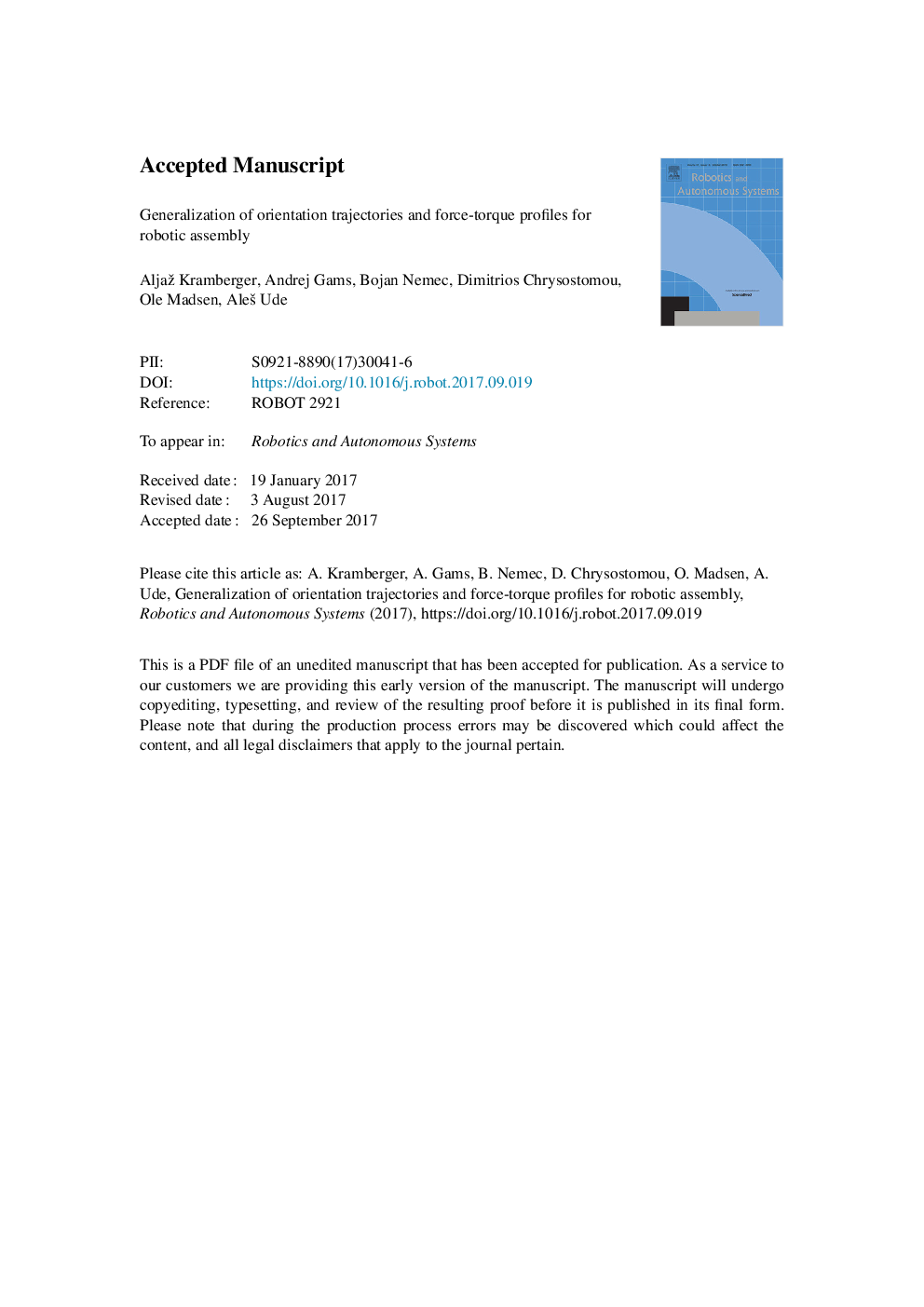| Article ID | Journal | Published Year | Pages | File Type |
|---|---|---|---|---|
| 6867419 | Robotics and Autonomous Systems | 2017 | 41 Pages |
Abstract
A typical robot assembly operation involves contacts with the parts of the product to be assembled and consequently requires the knowledge of not only position and orientation trajectories but also the accompanying force-torque profiles for successful performance. To learn the execution of assembly operations even when the geometry of the product varies across task executions, the robot needs to be able to adapt its motion based on a parametric description of the current task condition, which is usually provided by geometrical properties of the parts involved in the assembly. In our previous work we showed how positional control policies can be generalized to different task conditions. In this paper we propose a complete methodology to generalize also the orientational trajectories and the accompanying force-torque profiles to compute the necessary control policy for a given condition of the assembly task. Our method is based on statistical generalization of successfully recorded executions at different task conditions, which are acquired by kinesthetic guiding. The parameters that describe the varying task conditions define queries into the recorded training data. To improve the execution of the skill after generalization, we combine the proposed approach with an adaptation method, thus enabling the refinement of the generalized assembly operation.
Keywords
Related Topics
Physical Sciences and Engineering
Computer Science
Artificial Intelligence
Authors
Aljaž Kramberger, Andrej Gams, Bojan Nemec, Dimitrios Chrysostomou, Ole Madsen, Aleš Ude,
